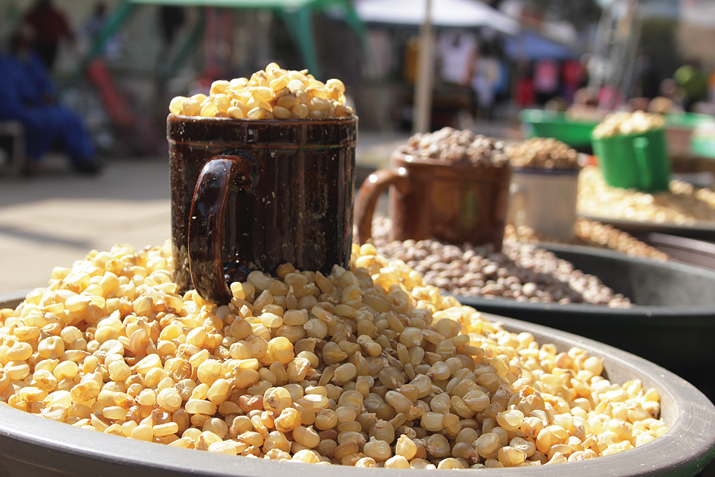Inadequate rainfalls have led to the poor performance by Botswana’s agriculture sector for the second year in a row, resulting in countrywide crop failure and poor grazing.
The Ministry of Agriculture (MoA) has revised the National Policy on Agriculture Development and is now being completed for implementation to accelerate diversification and commercialisation in the sector, while reaching out to disadvantaged groups.
MoA further jointly signed for a licensing agreement with Japans’ Nara Institute of Science and Technology (NAIST) that seeks to commercialise the technology on narrow leaved plants like maize and rice. In the agreement, Botswana and NAIST grants to Japan Tobacco Inc. (JT) exclusive rights to commercialise the patent.
In response to Gazette Business questionnaires, MoA Chief Communication & Investor Relations Officer, Baitshepi Babusi-Hill explained that the benefits to farmers are going to be realised after commercialising the genes when crops such as maize and rice are used.
“This effectively means that the exploitation of this technology will result in the development of genetically modified maize and/or rice. This will be in line with our recent policy on Bio-Safety that has been passed by Parliament this year. The bottom line is a move towards food security for our nations and the rest of the world. The implementation effected on the date of signing the agreement,” she said.
The technology is expected to enable farmers to produce high yields under normal and/or drought conditions. Furthermore, it is said that the technology could make crop production more efficient and save water resources used in agriculture due to its ability to improve the root system.
Asked if all the relevant stakeholders were consulted before signing the deal, Babusi-Hill said the stakeholders, that is government ministries and parastatals were consulted. In addition, she said “since this is a research in progress, there is still going to be further testing of the gene because the development of the genotype takes a long time and the scientists will still need to go into further research and testing against various environmental conditions.”
Meanwhile, she said JT, which has a world’s leading plant biotechnology laboratory, is also actively present in pharmaceuticals, beverages and processed foods. The technology is related to a novel gene found and isolated from a wild relative species of watermelon found in the Kalahari Desert of Botswana. The company is going to use the technology for drought tolerance and increased productivity in monocotyledonous (narrow leafed) crops.
In a telephonic interview with Gazette Business, Botswana College of Agriculture lecturer in Agriculture Extension and Rural Sociology, Dr Nelson Tselaesele welcomed the technology and said that Botswana will benefit from it. “This is going to improve our food security. However, we need to be cautious if it is a fair and equitable agreement to benefit from both financially and technologically. It should not be restrictive; we should be able to use it to improve other local genetic potentials. We would like to see it used on improving sorghum variety by infusing the genetic resource and for the crop to be drought resistant, as it is our staple food,” he lamented.
Asked if this technology may have any impact on Botswana’s environmental conditions, Dr Tselaesele explained that this should not have any negative impact. However, science has ethics and technology should not negatively affect the environment unless if it is not well researched. “I do not see the genetic extraction to have anything negative because it only promotes deep rootedness and drought resistance,” he added.

